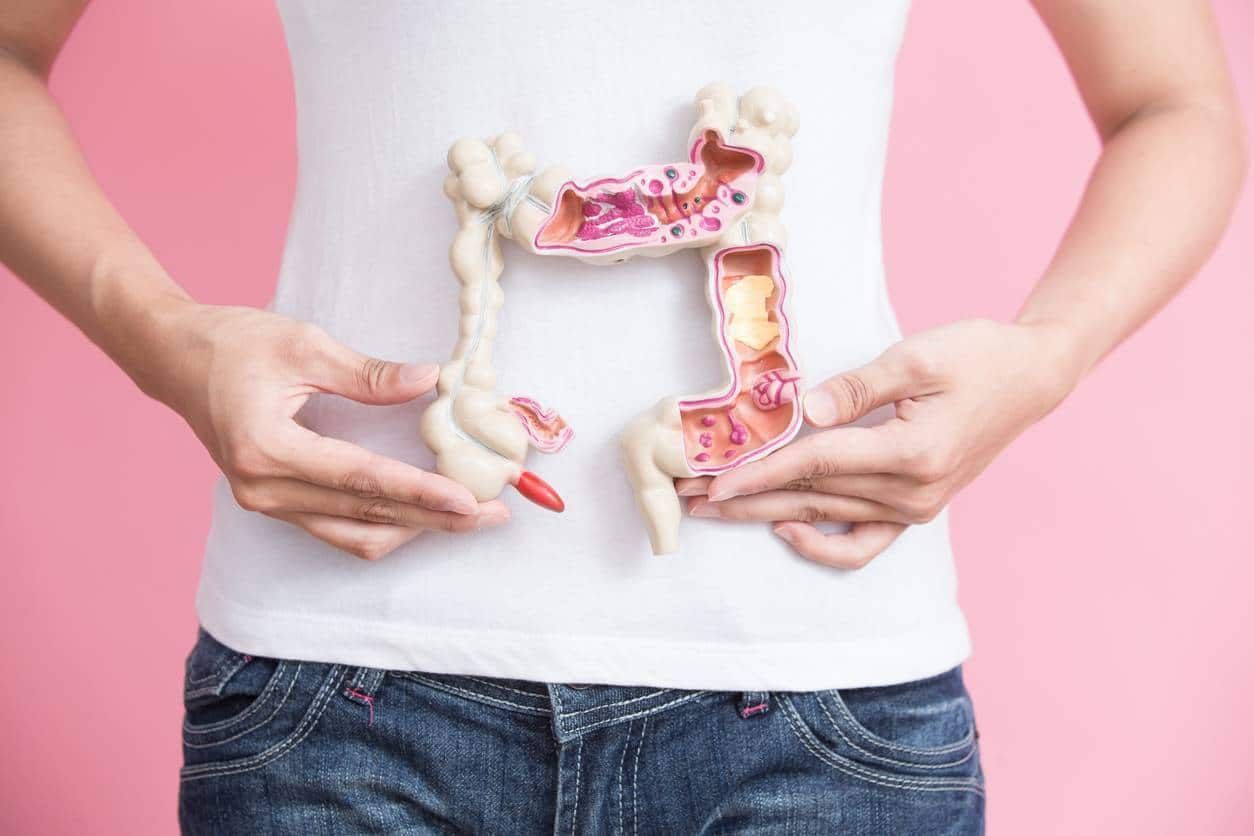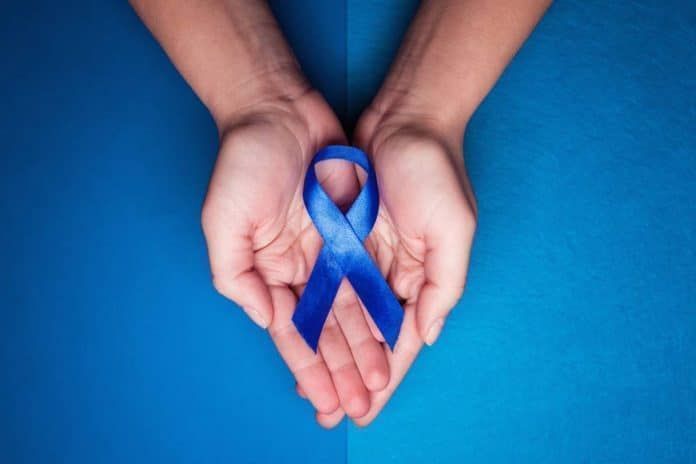Colon cancer: when and why to be screened ?
Cancer of the headôlon is the third most common and deadliest form of cancer. Also called « colorectal cancer », it takes several years to form and affects both men and women. Smoking, alcohol consumption, etc’alcohol, diet rich in red meat but poor in fiber, sedentary lifestyle, overweight, diabetes, age… There are as many factors to the’origin of colorectal cancerôon. To prevent this disease, a screening is necessary’imposes.
What are the symptoms?ôof colorectal cancer ? Why and when to screen for heart cancerôlon ? Who are the people concerned by the colorectal cancer screening ? These are the essential questions that we will answer in this article.
A small tour of’horizon on the côlon
The côis an integral part of the digestive system. More concretely, it follows the’small intestine to form the last part of the digestive system. More commonly known as the large intestine, the heartôlon has for rôthe scalp’absorb the’water and certain vitamins. It also ensures the’It is also extremely easy to position, since it eliminates waste and keeps the hair in place’water balance.
When you have diarrhea For example, this means that too much of a strand is too small’water s’is escaped by your heartôlon. In the same way, poorly digested food that forms waste is accumulated in the heartôYou need to be able to get rid of them in the excrement of the intestine’anus.
There are several diseases of the côlon. The most known are the following:
- Colon cancerôlon
- Colitis
- Diverticulosis
Colon cancerôand its symptomsômes
To understand this pathology, you need to know its meaning and causes.
Cancer of the heartôlon, c’What is it? ?
Colon cancerôIt is cancer in the heartôor in the rectum. In 70% of cases, it is located in the heart of the hairôlon. In 30% of cases, it is found in the rectum. Colorectal cancer develops in fact from a polyp’A cell that transforms and multiplies as a result of a polyp can be found on the surface of the skin’a mutation. It then develops in the cells of the côlon and rectum. Its formation is from polyps. These are small fleshy growths that line the inside of the colonôlon.
Although these polyps are most often benign, it happens that a cell that transforms and multiplies can become a cancer’they grow to become cancer. On average, it takes 10 years to a polyp to form a cancerous tumor. C’This is the reason why a colorectal cancer takes several years to form.
What are the main symptoms?ôof colorectal cancer ?
At an early stage, colorectal cancer evolves without symptomsôIt is also important to know that there are no visible signs of colorectal cancer, so screening for colorectal cancer should be done on a regular basis: more often than not, you will see the following signsôThe earlier the disease is detected, the less severe the treatments will be and the better the chances of recovery.

However, there are some warning signs that can occur. These symptomsôSymptoms that appear as the tumor grows in the surrounding tissues and organs (such as the liver). From there, you will see the following signs appear:
- Diarrhea
- Constipation
- Stools that seem narrower than normal’habit
- Light or very dark red blood in the stool
- False desire to eat’have a bowel movement
- Rectal bleeding accompanied by pain or d’discomfort
- Abdominal cramps
- Gas
- Bloating
- Loss of blood flow’Appetite and weight loss
Cancer of the bowelôlon: why get screened ?
There are many reasons to get screened for colorectal cancer. Here are some of them.
A screening to identify cancer of the heartôIt is important to be aware of the early stage of its development
Lifestyle habits, especially the’s diet, play an important role in the development of the diseaseôWhat are the main symptoms of colorectal cancer?’Onset of colorectal cancer. C’This is the reason why statistics show a high number of cases in industrialized countries. Whatever’It is important to anticipate treatment in order to avoid the risk of cancer get regular screening.
You should know that colorectal cancer can be cured in 9 cases out of 10, if and only if it is detected enoughôt. This approach makes it possible to plan the necessary treatments in the first phase of the disease’cancer progression. We refer to less aggressive treatment modalities and yet very effective. This means that you have a 90% chance of being cured of colorectal cancer’cancerôThe earlier the disease is detected, the less severe the treatments will beôt.
Screening to detect and treat polyps
It is the cancerous polyps that grow to become cancer. A screening allows to detect them and especially to treat them in time. Indeed, it is quite possible to treat these cancerous cells even before they are detected’they do not’evolve to more advanced stages.
When’they reach a stage of cancer’In advanced stages, cancerous polyps spread to the lymph nodes. They are’then attack the liver as well as other organs’to be treated’other organs of the digestive system and the body. Screening allows you to have a better understanding of the disease’It is important to anticipate the treatment in order to avoid the risk of cancer’prevent the spread of polyps cancer far from their point of origin’origin.
Screening for colorectal cancer using an immunological test
As part of the national screening program, it is now easier to detect colorectal cancerôlon. Previously, only the colonoscopy allowed to to diagnose colorectal cancer. Today’Today, screening is done via an immunological test.
Quick and efficient, this test can be done at home. It is’more precisely, it is a question of’a test that will identify the presence of blood in the stool. In the case of’a positive result, it’s a good thing’In other words, if blood is detected in your stool, you will have to undergo a colonoscopy to identify the cause of the bleeding. There is no need to be dramatic: a positive result (about 4% of cases)) to the immunological test does not instinctively mean that you suffer from diarrhea’s cancerôlon. D’Moreover, colonoscopy does not detect any abnormality in more than half of the cases. Often (in 30% of cases), the presence of blood in the stool is due to a precancerous lesion. In 8% of cases, colonoscopy will reveal a cancerous lesion.
Note that the immunological test can be used to’a more reliable, more ergonomic and more efficient test. Your doctor will give you the free kit. It is also important to know that the’The analysis of the test is 100% of the costs are covered by the government’Health insurance. You don’will not need to pay certain fees.
Cancer of the heartôlon: when to be screened ?
We recommend the immunological test between 50 and 74 years old. It concerns’elsewhere men and women. Why from the age of 50 and not before ? Simply because heart cancer is a thing of the pastôvery rarely appears before the age of 74’age of 40 years. However, nearly 95% of colorectal cancers are diagnosed after age 50. It is also important to screening for colorectal cancer every 2 years. L’s goal is to control the diseaseôRemember to exercise regularly to prevent all risks of cancer.
Another important point is that if you are not sure about your dental health, you should consider the following’If you have not reached your fifties, but you have a history of colorectal cancer or polyps, it is more prudent to proceed to a screening. You may be part of the 20% of the population with 3 to 4 times the risk of developing colorectal cancer. In this case, your doctor will refer you to the modalities of screening and monitoring best suited to your health profile.

Cancer of the heartôThe figures speak for themselves’themselves
Every year, colorectal cancer is the most common cause of death’It is the subject of several rigorous studies. Thanks to the data collected, it is possible to put in place efficient strategies to prevent this pathology as much as possible.
Who is considered to be at high or very high risk? ?
The level of risk of developing colorectal cancer depends on your personal and family history. It also takes into account your lifestyle habits. You can develop colorectal cancer, for example, if you never have sex’physical activities or sports. The same is true if you are overweight or not eating a healthy diet. People who have genetic abnormalities s’s also exposed to very high risks of cancer of the heartôlon. These people represent less than 5% of the population.
How many people are affected by colorectal cancer each year ?
In Belgium, the number of deaths due to colorectal cancer is estimated to be around 10 per day’is a student at 3,000 per year. More concretely, this is equivalent to about 10 deaths per day. In Canada, colorectal cancer is the third most common form of cancer. C’is also the second most common cause of death from cancer. In both sexes, however, the rate of death is increasing’The incidence of colorectal cancer is 40% 5 years after diagnosis. In addition, 1 in 14 men and 1 in 15 women are likely to have colorectal cancer’have colorectal cancer in their lifetime.
In France, colorectal cancer is the most common cancerôIt affects nearly 43,000 people each year. There are 23,000 men and 20,000 women. There are also more than 17,000 deaths per year. Screening is a sure way to detect heart cancerôlon in time. Despite the somewhat high number of deaths, we must admit one thing: it is quite possible to cure colorectal cancerôlon. However, it is imperative to detect it in time.
Last but not least: you can perfectly well have braces preventing this disease by adopting a healthy and balanced diet. Preferably, consume foods rich in fiber. N’Also, don’t forget to do regular physical exercises.

